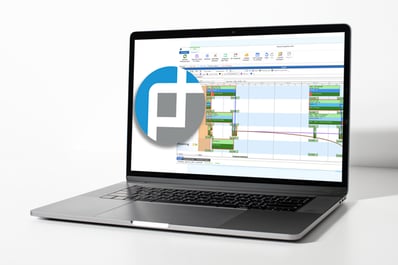Big Data Analytics for Advanced Production Scheduling
In the dynamic landscape of chemical manufacturing, staying competitive requires more than just efficient production processes. It demands foresight, adaptability, and precision in scheduling operations to optimize resources, minimize downtime, and meet customer demands. Fortunately, advancements in technology have brought forth powerful tools like Big Data analytics, revolutionizing how production schedulers operate.
In this blog, we'll look into the realm of Big Data analytics for manufacturing, specifically focusing on its integration with advanced production scheduling solutions like PlanetTogether. We'll explore how these tools, when integrated with leading ERP, SCM, and MES systems such as SAP, Oracle, Microsoft, Kinaxis, and Aveva, empower production schedulers in chemical manufacturing facilities to make informed decisions, enhance efficiency, and drive profitability.

Big Data Analytics in Manufacturing
Before looking into the intricacies of production scheduling, let's first grasp the concept of Big Data analytics in manufacturing. Big Data refers to the vast volume of structured and unstructured data generated by various sources within manufacturing processes. This data includes machine-generated data, sensor data, production metrics, supply chain data, and more.
Big Data analytics involves the collection, processing, and analysis of this data to extract valuable insights, trends, and patterns. These insights provide manufacturers with actionable information to optimize processes, improve quality, reduce costs, and enhance overall performance.

Integration with ERP, SCM, and MES Systems
To harness the full potential of Big Data analytics in manufacturing, integration with Enterprise Resource Planning (ERP), Supply Chain Management (SCM), and Manufacturing Execution Systems (MES) is crucial. Systems like SAP, Oracle, Microsoft Dynamics, Kinaxis RapidResponse, and Aveva MES serve as the backbone of manufacturing operations, managing various aspects such as inventory, procurement, production, and quality control.
When integrated with advanced production scheduling solutions like PlanetTogether, these systems create a seamless ecosystem where data flows across departments and processes, enabling real-time decision-making and optimizing resource utilization.
Benefits of Integration
The integration of Big Data analytics with ERP, SCM, and MES systems offers numerous benefits for production schedulers in chemical manufacturing facilities:
Real-time Visibility: By integrating with ERP and MES systems, production schedulers gain real-time visibility into inventory levels, production statuses, and machine performance. This visibility allows for proactive decision-making and quick response to changing demands or unforeseen events.
Data-Driven Decision Making: Big Data analytics enable production schedulers to leverage historical data, predictive modeling, and machine learning algorithms to make data-driven decisions. These decisions are based on accurate forecasts, demand patterns, and optimization algorithms, resulting in improved efficiency and resource utilization.
Optimized Production Scheduling: Integration with advanced production scheduling solutions like PlanetTogether enables production schedulers to create optimized production schedules that balance resource constraints, minimize setup times, and reduce idle time. These schedules are dynamically adjusted based on real-time data, ensuring maximum throughput and on-time delivery.
Improved Quality Control: By analyzing production data in real-time, production schedulers can identify quality issues early in the manufacturing process and take corrective actions to prevent defects or non-conformances. This proactive approach to quality control enhances product quality and customer satisfaction.
Cost Reduction: Through better resource utilization, reduced downtime, and optimized inventory management, integration with Big Data analytics and ERP systems helps in lowering production costs. Production schedulers can identify cost-saving opportunities, such as optimizing production sequences, reducing waste, and minimizing overtime expenses.
In the competitive landscape of chemical manufacturing, harnessing the power of Big Data analytics is no longer a luxury but a necessity. By integrating advanced production scheduling solutions like PlanetTogether with leading ERP, SCM, and MES systems, production schedulers can unlock new levels of efficiency, agility, and profitability.
As technology continues to evolve, the role of Big Data analytics in manufacturing will only grow in importance. Production schedulers who embrace these advancements and leverage them to their advantage will be well-positioned to navigate the complexities of modern manufacturing and drive success for their organizations.
Are you ready to take your manufacturing operations to the next level? Contact us today to learn more about how PlanetTogether can help you achieve your goals and drive success in your industry.






















LEAVE A COMMENT